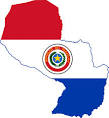 The FBI does not issue an apostille for FBI-issued background checks. The U.S. federal government handles all the apostilles for documents issued by its federal agencies, including the FBI. To be eligible for an apostille all background checks from the FBI must contain the appropriate signatures, names, and titles of the official and applicant signing the document. Without such information, the document cannot be approved for an apostille.
The FBI does not issue an apostille for FBI-issued background checks. The U.S. federal government handles all the apostilles for documents issued by its federal agencies, including the FBI. To be eligible for an apostille all background checks from the FBI must contain the appropriate signatures, names, and titles of the official and applicant signing the document. Without such information, the document cannot be approved for an apostille.
Our Blog
Armenia wants to take part in Hague Conference
 After the Netherlands proposed that the Hague Conference on Private International Law admit the Republic of Armenia as its newest member, the Secretary General of the Organization has officially commenced a six-month voting period for existing members to decide on Armenia’s admission. The Netherlands submitted the proposal after Armenia had expressed interest in joining the Hague Conference.
After the Netherlands proposed that the Hague Conference on Private International Law admit the Republic of Armenia as its newest member, the Secretary General of the Organization has officially commenced a six-month voting period for existing members to decide on Armenia’s admission. The Netherlands submitted the proposal after Armenia had expressed interest in joining the Hague Conference.
Existing members now have until May 6, 2014 to submit their vote. Armenia only needs a simple majority of the votes in order to join this organization.
Paraguay finally accepts the 1961 Hague Apostille Convention
 Over fifty years after the Hague Convention of 5 October 1961 Abolishing the Requirement of Legalisation for Foreign Public Documents (the “Apostille Convention”), Paraguay officially adopted the Apostille Convention and has deposited its instrument of acceptance on December 10th, 2013. However, the Hague Convention will not come into effect until 30 August 2014 for Paraguay.
Over fifty years after the Hague Convention of 5 October 1961 Abolishing the Requirement of Legalisation for Foreign Public Documents (the “Apostille Convention”), Paraguay officially adopted the Apostille Convention and has deposited its instrument of acceptance on December 10th, 2013. However, the Hague Convention will not come into effect until 30 August 2014 for Paraguay.
Unaccompanied Minors: Travelling to and From Mexico
 As of last November, changes in Immigration Law in Mexico have created new requirements for minors (ages 17 and under) travelling to and from Mexico without their parents or legal guardian. The minors must submit their immigration documents, as well as a notarized letter from the parent permitting the child to travel without them. This letter must be certified with an apostille stamp and be translated into Spanish.
As of last November, changes in Immigration Law in Mexico have created new requirements for minors (ages 17 and under) travelling to and from Mexico without their parents or legal guardian. The minors must submit their immigration documents, as well as a notarized letter from the parent permitting the child to travel without them. This letter must be certified with an apostille stamp and be translated into Spanish.
Failing to comply with these regulations can lead to the passenger(s) being prohibited from boarding and/or a fine.
How to: Get a Diploma Apostilled in Japan
 Japanese students and recent graduates looking to work and study abroad will need their degrees, diplomas, or certificates earned in Japan to be recognized overseas. The Certificate Section of the Foreign Ministry’s Consular and Migration Division handles certification of these types of documents.
Japanese students and recent graduates looking to work and study abroad will need their degrees, diplomas, or certificates earned in Japan to be recognized overseas. The Certificate Section of the Foreign Ministry’s Consular and Migration Division handles certification of these types of documents.
In Japan, there are two types of certification for a document: a koin, which is an official stamp, and an Apostille, which is an official addendum.
A koin is available for degrees, diplomas, and certificates from any educational institution, private or government-funded, from primary school through university.
An Apostille, however, can only be obtained for degrees, diplomas, and certifications received from government-operated schools and universities. The upside is that you do not have to bring these documents to the Japanese Embassy, but it is important to note that the documents will only be recognized by countries that are members of the Hague Convention.
In order to have your documents certified by koin or apostille, you need to provide the original document containing the stamp of the school or principal. For an Apostille you will also need to produce a copy of the document.
If you are unable to appear at the Foreign Ministry in person, you may send a self-addressed, stamped envelope, in addition to a letter explaining that you need an application form to validate your degree, certification, or diploma.
When you receive the application form, complete and return it to the ministry with the appropriate documents and copies, as well as a self-addressed, stamp envelope. It will usually take a week for the certified document to be returned to you.